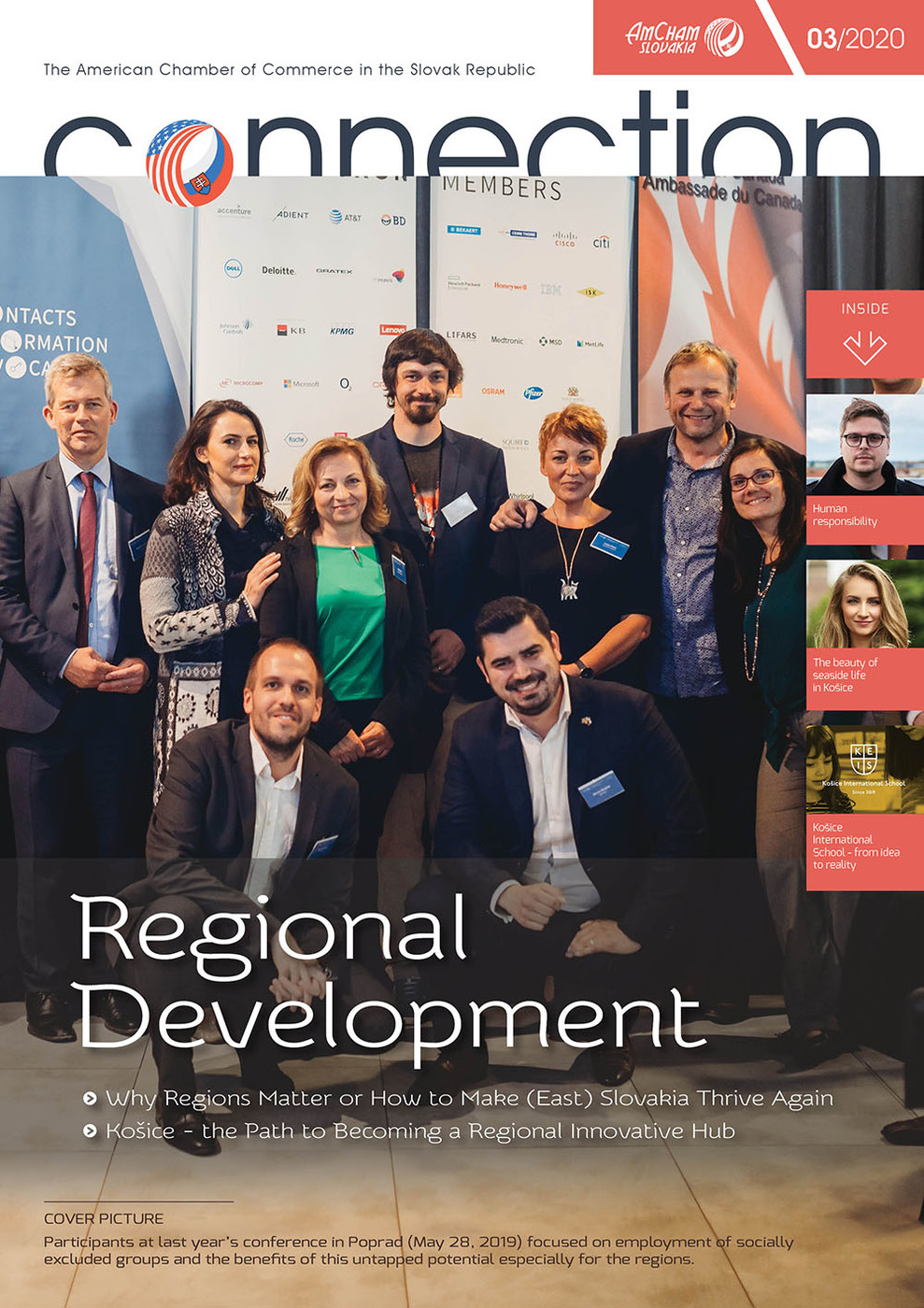While the pandemic has hit all Member States, economic consequences differ. According to the European Commission forecast, Slovakia´s economy should contract sharply by 6,7% this year, but it should recover and grow by 6,6% in 2021. In addition, the crisis has revealed and enhanced structural weaknesses of the economy. In its regular country assessment published before the pandemic, the Commission pointed out that Slovakia had not taken advantage of the good times and was lagging behind in areas essential for further prosperity, such as the quality of public administration, education, research, innovation and green and digital transformation.
Now, Slovakia is getting a second chance. The crisis can offer a historic opportunity to modernize the country, and to restart the economy on green and digital principles using a major recovery plan proposed by the Commission on 27 May. The Commission analysis of the damage to the EU economy has shown significant investment gaps and equity losses for European companies. There is no silver bullet to respond to these needs, but all tools, targeting both public and private levels, have to be mobilized. A new recovery instrument, “Next Generation EU” is worth 750 billion EUR combining grants and loans, and will provide an additional financial injection on top of the revamped EU long-term budget for 2021 – 2027. This will bring the total financial firepower of the EU budget to 1,85 trillion EUR. This is an unprecedented EU reaction to an exceptional crisis, which we have not experienced before. The emphasis is on climate neutrality and digital transformation so as to prepare a better future for the next generation. From the “Next Generation EU” alone, Slovakia should get eight billion EUR in grants.
One set of measures is aimed at helping private investment to get moving again and to create conditions for a sustainable recovery led by private investment in key sectors and technologies. The “InvestEU Fund” will mobilize public and private investment through an EU budget guarantee that will back investment projects and increase their risk-bearing capacity. EIB will distribute preferential loans either directly or through financial intermediaries. To support otherwise viable companies that are now faced with solvency issues due to the coronavirus crisis, the Commission proposed a new, temporary “Solvency support instrument”. However, the most significant bulk of financial assistance is designed for Member States. Besides increased allocation for the Cohesion policy (ReactEU or Just Transition Mechanism), the biggest fund of 560 billion EUR is for the completely new “Recovery and Resilience Instrument” (RRF), which forms the “heart” of the Commission package. It will provide large-scale financial support for structural reforms and investments, including green and digital transformation measures. Slovakia should be entitled to 6,6 billion EUR in grants and 4,87 billion EUR in loans, if it is able to develop and implement sound recovery plans.
Slovakia, as well as all the other Member States now need to act very quickly to start defining and prioritizing the most needed structural reforms, as the very first draft recovery plan should be submitted to the Commission in October this year. There are then only two official submission deadlines for final recovery plans, in April 2021 and April 2022. The instrument is temporary and all funds have to be allocated by 2024. Commission recommendations should serve as guidance for structural reforms, the last one published on 20 May 2020. The Commission advises Slovakia to increase resilience of the healthcare system, alleviate health workforce shortages and improve primary care. The crisis has increased the need to develop digital skills, expand broadband connectivity and improve quality and inclusiveness of education. To strengthen the economy´s resilience, Slovakia would benefit from increasing the innovation capacity of businesses, effective research-innovation ecosystem and higher value-added investment. Improving the quality, effectiveness and digitalization of public services as well as fostering a favorable business environment are crucial for a speedy recovery. A well-designed tax reform could shift tax burden from labor to areas which are less distortionary to economic growth such as property and environmental taxes. Priority areas for the green agenda include reducing the energy intensity of industry, supporting energy efficiency solutions in buildings, investing into renewable energy and circular economy.
For Slovakia to succeed it would require an exceptional mobilization of public administration, analytical capacities and stakeholders, not only to prepare credible recovery plans, but in particular to deploy effective implementation mechanisms. The timeframe is very short and Slovakia does not have a good track record for an effective implementation of Cohesion Policy funding, with only 33% funds drawn so far.
Next three years will be critical as the public administration will have to effectively handle a few parallel processes. Firstly, to set up a suitable implementation mechanism for the new RRF with an overall max allocation of 10 billion EUR (grants and loans). Secondly, it has to cope with the overlapping of the two programming periods for the Cohesion Policy funding. On one side to complete the drawing of 10 billion EUR from the current programming period by 2023 as well as launching the new programming cycle (2021 – 2027) with the allocation of 12 billion EUR. Furthermore, Slovakia should receive an additional 0,7 – 1 billion EUR from the new “ReactEU” instrument to continue addressing the immediate needs of the COVID-19, in particular the healthcare sector, and employment and liquidity in SMEs. Synergies and compatibility between reforms and investments, as well as numerous plans accompanying different instruments, have to be ensured as well. Regions with their investment priorities can interact through their integrated regional strategies, which are being developed.
All this requires strong political ownership and vision, but also immense responsibility. This is a challenge that Slovakia can cope with only when facing a crisis such as this, a crisis which provides an opportunity to bring people together to act. There is no other choice, no time to waste – merely hard work and the aspiration to create a better future for the next generation, by acting together within Slovakia and with the EU.
Despite the crisis a historic chance for Slovakia
The COVID-19 crisis has tested our healthcare, economies, our way of living and working together. Thanks to the swift reactions to the pandemic with the introduction of strict confinement measures, together with the remarkable wave of public solidarity and discipline, Slovakia is among the most successful countries in terms of fatalities.
Regional Development
- Human responsibility
- Local innovation ecosystem of the future
- The future of local investing
- The beauty of seaside life in Košice
- City of Prešov: Vision of a successful ECOC 2026 candidacy
- Why regions matter or how to make (East) Slovakia thrive again
- The path to vibrant city ecosystems
- Despite the crisis a historic chance for Slovakia
- Košice International School - from idea to reality
- Covid crisis as an accelerator of innovations
- Making the connections between business and life
- The HORECA sector needs our help



Follow us